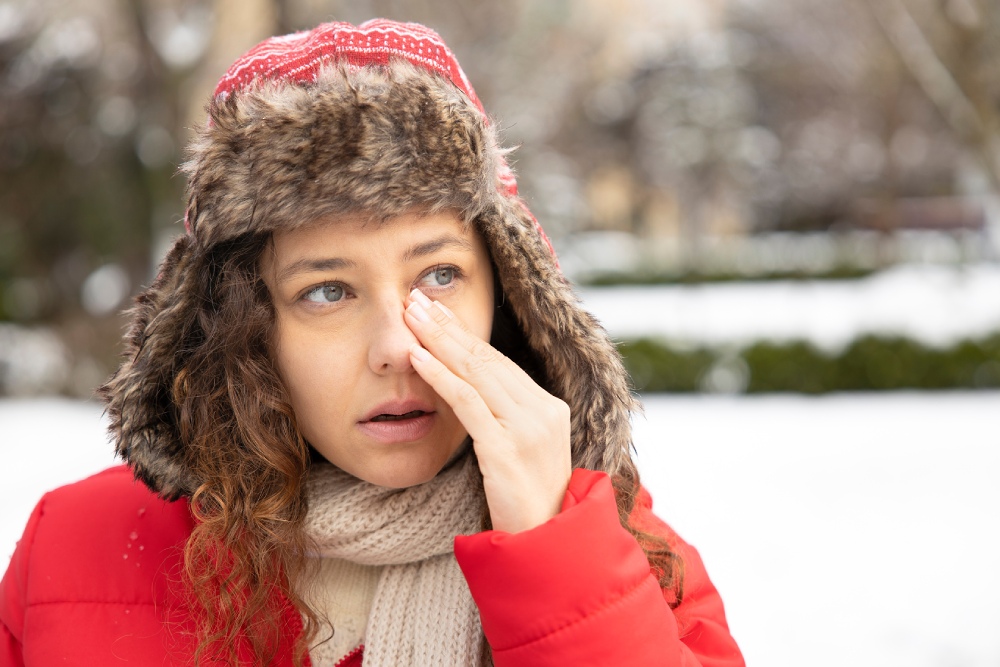Are your eyes feeling dry and itchy now that the weather has gotten colder? You’re not alone! As the temperature and humidity drop, many people suffer from dry eye. It can range from mild to severe and has different causes like age, hormonal changes, medication, or environmental conditions. Luckily, there are plenty of ways to prevent and treat dry eye. Here are some tips you can try to keep your eyes moist and healthy throughout the winter.
1. Use a humidifier
Humidifiers are a great way to add moisture to dry air, and they can work wonders for your dry eyes. By using a humidifier in your home or office, you can keep the air moist and prevent dry eyes. Aim for a humidity level of around 40-60% for maximum comfort.
2. Avoid direct heat sources
Direct heat sources like space heaters, fireplaces, and radiators can dry out the air and make your dry eye symptoms worse. Instead, try to keep your home at a consistent temperature by using a thermostat. If you need to use a heat source, make sure you’re not sitting too close to it and keep the room well-ventilated to prevent the air from getting too dry.
3. Remember to blink
When we’re focused on a task like reading or working on the computer, we often forget to blink. This can lead to dry and irritated eyes. To prevent dry eye, try to blink more frequently, especially when staring at an object for long periods. It helps to keep your eyes moist by increasing tear flow.
4. Stay hydrated
Staying hydrated is essential for maintaining healthy eyes. Drinking plenty of water helps keep your eyes moist and prevents dryness. Try to drink at least eight glasses of water a day and limit your intake of diuretics like caffeine and alcohol, which can lead to dehydration.
5. Take breaks from electronics
During the cold winter months, we tend to spend more time inside staring at screens, which can dry out our eyes. To prevent dry eye, take breaks from screens every 20 minutes and look at an object 20 feet away for 20 seconds or more. This will give your eyes a break and allow them to rest and rehydrate.
6. Wear protective eyewear
Dry wind and bright sunlight can make your eyes feel dry and irritated, leading to dry eyes. Make sure to wear sunglasses or goggles when you’re outside to shield your eyes from the wind. Your eyewear should also block UV rays to protect your eyes from UV damage.
7. See an eye doctor
If you’re still suffering from dry eye despite trying these tips, it’s important to talk to your eye doctor. They may suggest other treatments, like prescription eye drops or lifestyle changes. Regular eye exams are also crucial, as dry eye can lead to other eye problems like infection or corneal damage.
At Omaha Primary EyeCare, we offer several treatments for dry eye, including light therapy and a deep cleaning of your eyelids and eyelashes. These treatments can help improve the quality of your tears and reduce inflammation, providing long-lasting relief for dry eye symptoms.
Winter can be rough on your eyes, but it’s crucial to take care of them and prevent dryness. By following these tips, you’ll be able to enjoy all the season’s beauty without dealing with dry, uncomfortable eyes. If your dry eye persists or seems to be getting worse, contact us to schedule an appointment. Our eye doctor can figure out what’s causing your dry eye symptoms and suggest the best treatment options for you.




